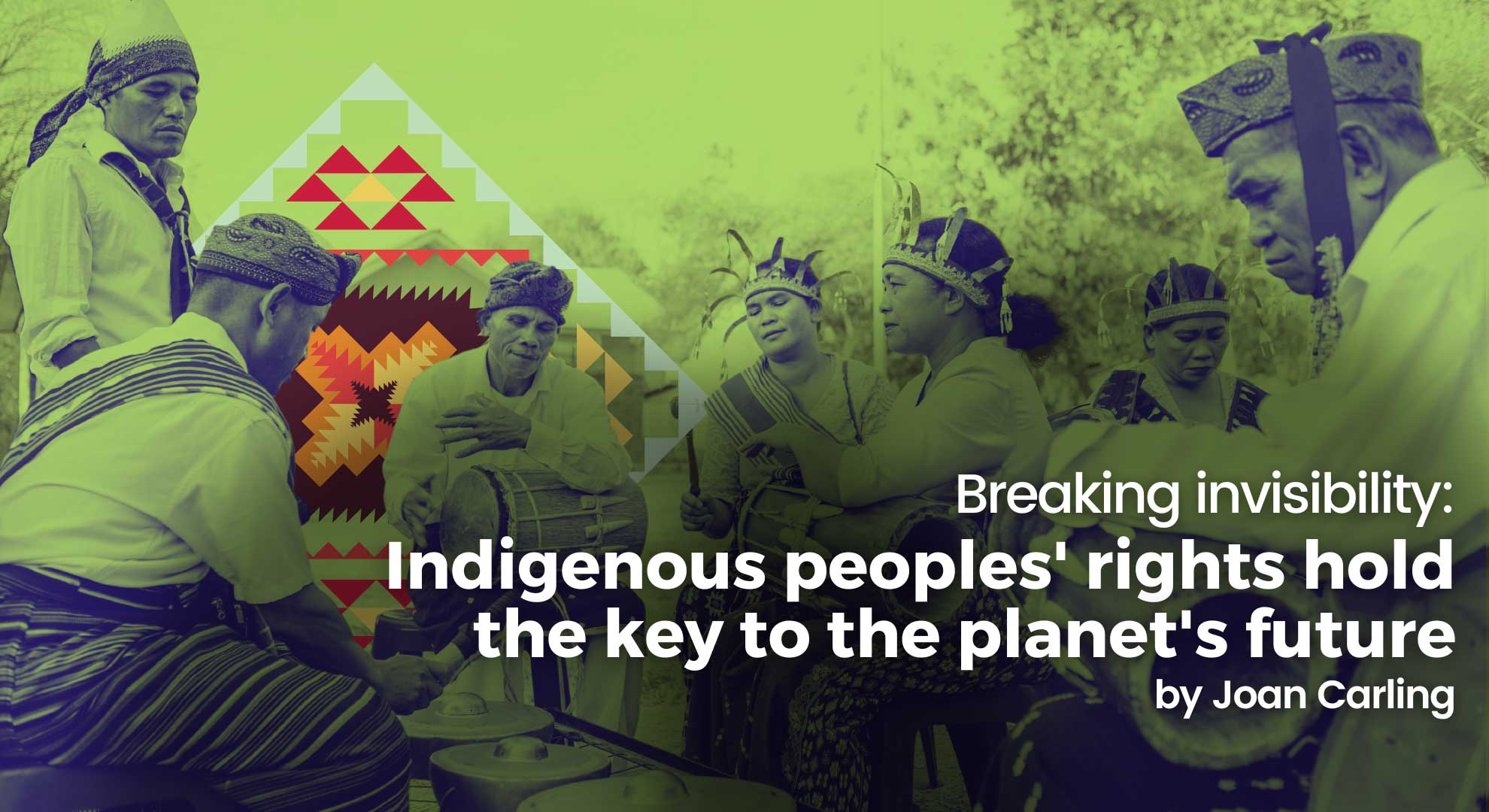March 26, 2023. The existence of future generations, and particularly that of Indigenous Peoples, is at stake in water management, in the context of increasing natural disasters and climate change. In the face of this, respect for the rights of Indigenous Peoples must be affirmed and turn to their knowledge and experiences, agreed leading indigenous activists during the webinar “Promoting a rights-based and ecosystem-based approach to achieving the Sustainable Development Goals and the Water Action Agenda”.
The webinar, which was a side event of the UN Water Conference, was organized by Asia Indigenous Peoples Pact (AIPP), Right Energy Partnership with Indigenous Peoples (REP), the Indigenous Peoples Major Group for Sustainable Development, and The Indigenous Peoples Rights International (IPRI). Its aim was to highlight the key challenges facing Indigenous Peoples in relation to water conservation within their territories, as well as their contributions to addressing the water and climate crisis. This includes managing resources and ensuring access to clean water, as well as supporting sustainable livelihoods.
"For Indigenous Peoples, water is life, water is sacred, water is sustenance, water is for all generations. Water is not a commodity for profit, but a common good to be shared responsibly," Joan Carling, Kankanaey Igorot of the Philippines and executive director of IPRI, said during the presentation. She pointed out that, when talking about a rights-based and ecosystem-based approach, we are talking about securing the rights of Indigenous Peoples, women, communities, small-scale farmers and fishermen, as well as addressing the interrelatedness of nature as the basis for action on water.
Prabindra Shakya, from the Newar indigenous community in Nepal, warned that the development of large dams does affect communities and is not as "green" as they want to show. Among the impacts identified are: lack of participation of Indigenous Peoples in project planning, as well as lack of free, prior and informed consent; dispossession of resources from indigenous communities, usually followed by forced displacement; loss of culture and identity associated with loss of water and territory; reprisals against indigenous leaders who lead the defense of their territories; and environmental impacts and unethical practices in the implementation of these projects.
He added that a related problem is the lack of official recognition of Indigenous Peoples as such, or the lack of respect for their rights when they are recognized.
Elias Sakau, a Maasai from Kenya, elaborated on the dramatic situation indigenous communities are facing due to the unprecedented drought in the Horn of Africa. The death by thirst of livestock - which is a family heritage - has thrown communities into starvation. And, although there is legislation protecting Indigenous Peoples, the programs implemented are not based on the reality of the communities and are not alleviating the situation. For example, fertilizers are given, but the pastoralists are not farmers, and drought prevents planting.
The destruction of water catchment sites in the Mao Forest and sand mining are contributing to the drought, contrasting with the sustainable indigenous practices of not accumulating and reducing the ecological footprint, he said.
Leonidas Iza Salazar, Kichwa Panzaleo and leader of CONAIE in Ecuador, explained the damage that mining is causing to indigenous territories with highly biodiverse water zones. He recalled that one of the key points of the 2022 indigenous mobilization was that of mining extractivism and the right to prior, free, and informed consultation. However, he pointed out, the government has not complied with issuing a law on the matter and has allowed the military to become the private guards of the mining companies.
Rojieka Mahin, Dusun from Malaysia, presented as a sustainable experience the installation of micro-dams in indigenous communities, based on a reverse-flow system that depends on the available flow. This, he said, better controls energy and resources, promotes conservation and takes into account the spiritual and cultural elements of the Indigenous Peoples. It also promotes the survival of ecosystems and is based on taking only what is needed.
She stressed the importance of recognizing the role and contribution of Indigenous Peoples to conservation practices, as well as respect for their rights, territories, and resources.
Johnson Jamet, from the Mukkuvar community in India, noted that in their work with coastal indigenous peoples, they documented their long history of resistance and indigenous science. This is often superior to Western science, especially in terms of local resources, he said. He considered that it is important to have indigenous media to make their own stories, languages, and practices visible, as well as social business models that provide jobs. Also, the participation of indigenous people in all aspects of their lives and the adaptation of technologies to protect ecosystems.
In response to questions from the audience, the speakers considered that, in order to confront the corporate lobbies that impose themselves on the climate summits, it is necessary to demand accountability and the imposition of sanctions on companies; adopt no-go zones policies; demand mandatory due diligence policies and complaint mechanisms as requirements; increase the participation of indigenous peoples at all levels and seek recognition of Indigenous Peoples as stewards of ecosystems.


